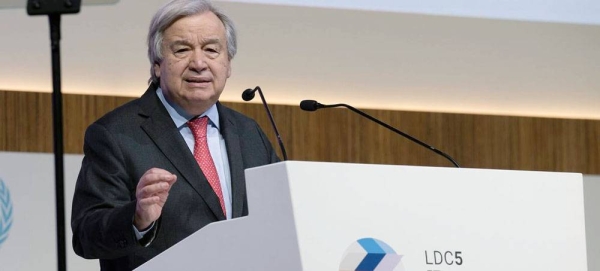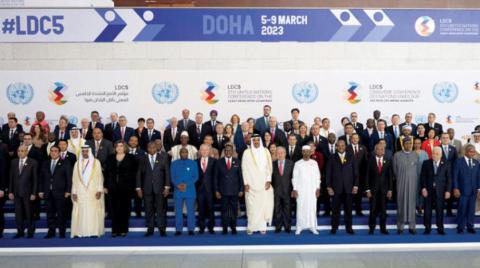
Al-Othaimeen hailed the success that many member states had had in implementing effective and rapid solutions
JEDDAH: In a speech at an extraordinary virtual conference of education ministers on Thursday, Dr. Yousef bin Ahmed Al-Othaimeen — secretary-general of the Organization of Islamic Cooperation (OIC) — stressed the value of sharing ways in which countries have managed their education systems during the COVID-19 pandemic.
The conference — organized by the Islamic World Educational, Scientific and Cultural Organization (ICESCO) — was attended by 38 education ministers and five deputy ministers, and representatives of 12 international organizations, who reviewed guidance from international organizations on preparations for a safe return to schools.
Al-Othaimeen hailed the success that many member states had had in implementing effective and rapid solutions — often using technology and artificial intelligence — to ensure continuity of education.
However, he pointed out that less-developed countries, particularly those that are struggling economically, needed urgent assistance to mitigate the negative effects of schools and other institutions being closed.
He called on member states with high levels of technological capability to provide support and advice to less-fortunate countries, and said it was a collective responsibility to take “serious action to ensure a safe return to (education).”
Saudi Minister of Education Dr. Hamad bin Mohammed Al-Asheikh said that education ministries’ responsibilities have multiplied during COVID-19.
“We gained experiences dealing with the crisis. Saudi Arabia started providing distance education services years ago, but what is new is the modernization of this system — which now extends to 20 live broadcast channels from the iEN Education Portal — in addition to making educational content available through different social media platforms and channels for various Saudi universities,” he said, adding that the Kingdom will continue to use these systems even after the COVID-19 crisis passes, to try and address the problem of students dropping out of school.
The president of the Islamic Development Bank Group, Dr. Bandar Al-Hajjar, said that, in its 45-year history, the bank has financed 20 education projects worth around $5 billion, and provided about 17,000 education grants.
UNESCO’s assistant director general for education, Stefania Giannini, said that around 100 million students around the world are currently unable to continue their education due to a lack of availability of online communication technologies, which underlines the importance of ensuring that schools can operate properly.








